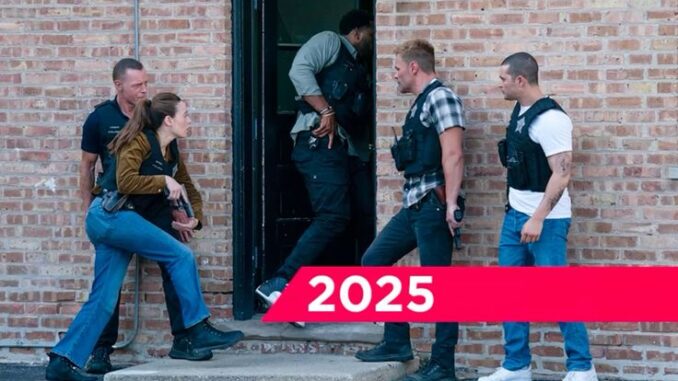
After more than a decade on the air, Chicago P.D. has established itself as one of NBC’s most consistent dramas. With twelve seasons under its belt, the series continues to deliver high-stakes cases, emotional character arcs, and the gritty realism that fans have come to expect from Dick Wolf’s One Chicago universe. But as Season 13 approaches, many loyal viewers have the same request: bring back the one element that made the early seasons truly unforgettable—the balance between character-driven drama and the dangerous unpredictability of policing in Chicago.
The Magic of the Early Seasons
When Chicago P.D. first premiered in 2014, it felt raw, fast-paced, and unpredictable. The Intelligence Unit wasn’t just another TV cop team; they were deeply flawed individuals navigating a morally gray world. The cases were gritty and high-stakes, but what kept fans hooked was the way those cases intertwined with the personal lives of the characters.
Sergeant Hank Voight wasn’t the softened, fatherly figure we sometimes see today—he was unpredictable, feared, and capable of anything. Jay Halstead still had an idealistic streak, constantly clashing with Voight’s ruthless methods. Erin Lindsay was the emotional core of the team, torn between her loyalty to Voight and her fight to overcome her troubled past. Antonio Dawson, Adam Ruzek, Kim Burgess, and Kevin Atwater were still figuring out where they fit, and that struggle gave the unit’s dynamic a sense of urgency.
What Changed Over Time
As the seasons progressed, Chicago P.D. leaned more heavily into serialized storytelling, focusing deeply on specific characters—sometimes at the expense of the team dynamic. Major exits, like Sophia Bush’s departure in Season 4 and Jesse Lee Soffer’s in Season 10, shifted the tone of the show dramatically.
The cases of the week, once a highlight, began to feel secondary to long arcs about individual characters. While these arcs produced standout storylines—like Atwater’s exploration of racial injustice and Burgess’s battle with trauma—they sometimes pulled focus away from the collective energy that made the Intelligence Unit so compelling in its early years.

The One Thing Season 13 Needs
For Chicago P.D. to recapture its early greatness, Season 13 needs to restore the balance between procedural tension and character drama. Fans don’t just want to see Voight, Burgess, or Ruzek go through personal struggles in isolation; they want to see the team operate as a flawed but cohesive unit where every member’s perspective matters.
This means more ensemble-driven episodes—cases that challenge the Intelligence Unit as a whole, forcing clashes of ideology and strategy. It means revisiting the moral gray areas that defined the show’s beginning, where Voight’s decisions weren’t predictable and the line between justice and corruption felt razor thin. It means giving each character a voice at the table, rather than spotlighting one or two at a time.
Why It Matters Now
After twelve seasons, it’s natural for a long-running drama to evolve. But as Chicago P.D. heads into its milestone 13th year, the stakes are higher than ever. Viewers who have stuck with the show since the beginning crave the sense of urgency and unpredictability that made them fall in love with it in the first place.
By reintroducing that early formula—balancing high-stakes cases with messy, character-driven storytelling—the show can both honor its past and carve a future that feels fresh. With beloved characters gone and new ones stepping in, Season 13 has the perfect opportunity to reset the tone and remind fans why Chicago P.D. was once one of television’s most talked-about crime dramas.
Every era of Chicago P.D. has brought something unique, but the early years hold a special place in fans’ hearts. What made those seasons so great wasn’t just the shocking cases or the cliffhangers—it was the way the characters’ personal demons and the dangerous streets of Chicago collided to create unrelenting tension. If Season 13 can bring back that balance—gritty cases that matter, a morally complex Voight, and a true ensemble focus—then the show has a chance not only to reclaim its peak but also to remind fans why they’ve stayed loyal for over a decade.
